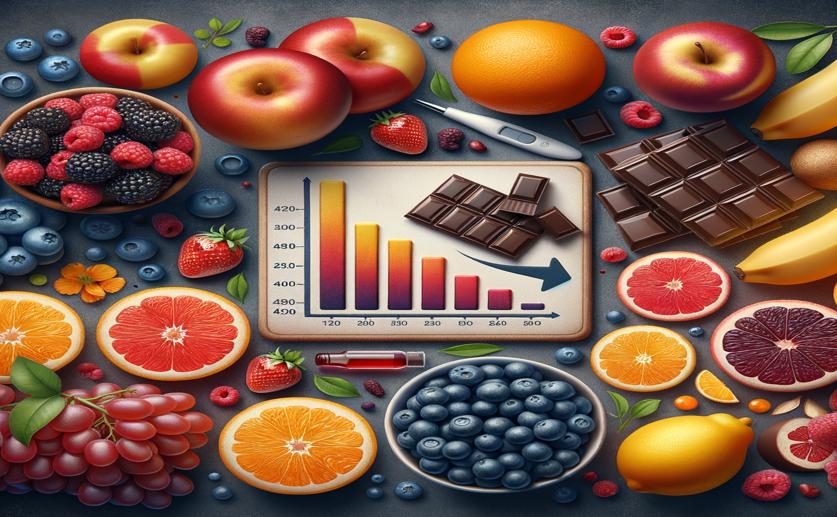
Eating More Flavonoid-Rich Foods Linked to Lower Risk of Type 2 Diabetes
Jenn Hoskins
23rd May, 2024

Image Source: Natural Science News, 2024
Key Findings
- A study by Queen's University Belfast found that a diet high in flavonoid-rich foods can reduce the risk of developing type 2 diabetes (T2D)
- Participants with a higher intake of flavonoid-rich foods had a 26% lower risk of T2D, partly due to lower body fat, reduced inflammation, and better kidney and liver function
- Specific foods like black or green tea, berries, and apples were linked to a significantly lower risk of T2D
NutritionHealthFitness And Diet
References
Main Study
1) Higher habitual intakes of flavonoids and flavonoid-rich foods are associated with a lower incidence of type 2 diabetes in the UK Biobank cohort.
Published 22nd May, 2024
https://doi.org/10.1038/s41387-024-00288-0
Related Studies
2) Global Economic Burden of Diabetes in Adults: Projections From 2015 to 2030.
3) Flavonoids: an overview.
4) Association Between Plant-Based Dietary Patterns and Risk of Type 2 Diabetes: A Systematic Review and Meta-analysis.



 22nd March, 2024 | Jenn Hoskins
22nd March, 2024 | Jenn Hoskins